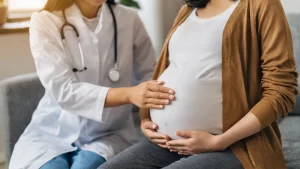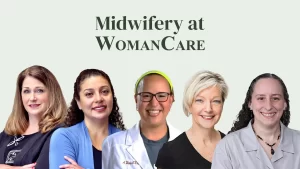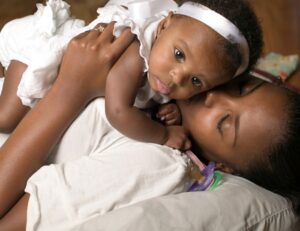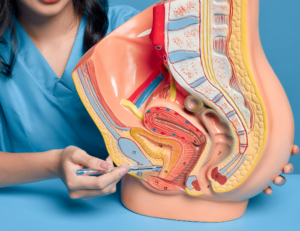While younger women are more likely to get pregnant faster and without fertility support, it’s also true that a healthy pregnancy after 35 is entirely possible. Plenty of women 35 years and older are giving birth to healthy babies every day. There’s nothing magical that happens before and after a woman’s 35th birthday but it’s true there are some risks to mothers past their mid-20s.
Many women are waiting longer to start their families. The rate of babies born to first-time mothers 35 and older is significantly higher than in past decades. As the popularity of later-in-life pregnancies continues to grow, the medical community continues to evolve to meet the demand. One part that seems to lag behind is medical language. Women who choose to start their families later in life are often plagued by the terms “geriatric pregnancy” and “advanced maternal age.” While these terms aren’t very positive or promising, how much does age really matter?
Your health before and during pregnancy is more important than your age but if your goal is to get pregnant without any fertility support from a doctor, the best age is between 25 and 32. From 35 to 38, it can take longer to conceive mostly due to the decline of egg quality. If you’re open to fertility support after 35, you can speak with your OB/GYN or a fertility specialist to learn more about your options.
Here are some of the things you can expect if you become pregnant after 35:
- You may need fertility support
- The risk of pregnancy loss is higher
- The risk for pregnancy and birth-related complications can go up such as preeclampsia and gestational diabetes
- Increased chance of a multiple pregnancy
- Your pregnancy will be more carefully monitored
- Increased risk of having smaller babies and premature babies
- Increased chance a mother will need a c-section
You may wish to consider all genetic testing options as babies of older moms are at increased risk of chromosomal problems.
If you’re struggling to become pregnant, meet with one of our WomanCare fertility specialists to go over your medical records and information about your reproductive history to assess your options. In many cases, your fertility specialist may suggest trying two or three cycles of Clomid, an oral fertility medication. This is a common first step on the fertility journey. Clomid stimulates the ovaries and helps them release one or more eggs, increasing the chance of getting pregnant.
Other things you can do to help support a healthy pregnancy:
- Seek regular prenatal care
- Eat a nutritious diet
- Stay active
- Don’t smoke
- Manage medical problems such as high blood pressure, heart disease, or diabetes
- Maintain a healthy weight
If you’re approaching 35 or 35 already and beginning your journey to pregnancy, schedule a preconception appointment with WomanCare by calling 847-221-4900 (Arlington Heights, IL or one of our other locations.) You can discuss your options with your OB/GYN and learn more. Your OB/GYN can also speak with you about how to time intercourse to increase your chances of getting pregnant.








